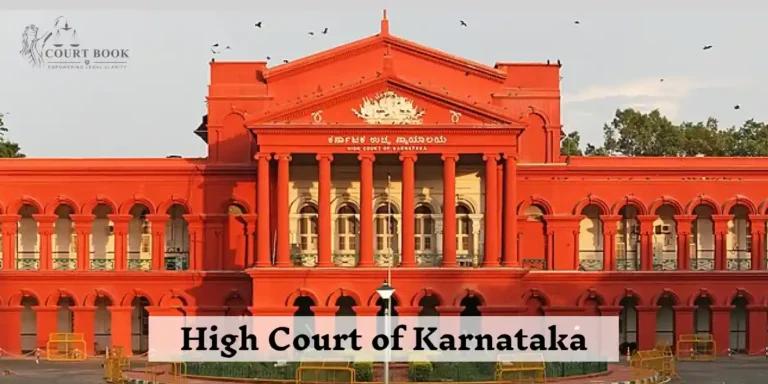The Karnataka High Court has acquitted Addanada Kariappa, the editor of the Kannada weekly newspaper Veeranadu, in a criminal defamation case. The court set aside the conviction and sentence imposed by the trial court, emphasizing that the complainant failed to prove the reputational harm in the estimation of others as required under the law.
Justice Rajesh Rai K, in an order dated April 8, 2025, allowed the criminal revision petition filed by the editor and overturned the judgment passed by the Principal Civil Judge and JMFC, Ponnampet, in C.C. No.1258/2010 and confirmed by the II Additional District and Sessions Judge, Kodagu in Crl.A.No.2/2016.
“The revision petitioner/accused is acquitted for the offence punishable under Section 500 of IPC. The bail bond executed by the revision petitioner stands cancelled,” stated the court.
The defamation complaint was filed by Philiphose Mathew, a social worker from Kodagu, who alleged that the editor published defamatory editorial articles on September 1, 2008, and September 15, 2008. These articles, according to Mathew, carried content that aimed to incite religious tensions and made personal imputations damaging his character and dignity.
In his private complaint filed under Section 200 of the CrPC, Mathew, a Christian devoted to social causes, stated that the first editorial was intended to create animosity among different religions. Offended by the initial report and the case filed against him, Kariappa published a second editorial with further derogatory remarks, the complainant claimed.
He alleged that the articles published by Kariappa sullied his public image and subjected him to mental agony. To support his claim, Mathew examined himself as PW.1 and produced another witness as PW.2. The trial court convicted Kariappa under Section 500 IPC, sentenced him to seven days of simple imprisonment, and imposed a fine of ₹10,000, of which ₹5,000 was awarded to the complainant as compensation. Both the accused and the complainant appealed before the Sessions Court—Kariappa challenging the conviction and Mathew seeking an enhanced sentence—but both appeals were dismissed.
During the revision proceedings before the High Court, the petitioner argued that the essential legal requirement under Explanation 4 of Section 499 IPC was not met. The defense submitted that no witness, except PW.2, was examined to show that the public opinion about the complainant was negatively affected by the alleged defamatory publications.
Justice Rajesh Rai K observed, “To attract the offence of defamation there must be publication of imputation intending to harm the reputation of the person who felt defamed. The person, involving whom such publication is made, must prove that in estimation of others his moral or intellectual character is lowered down as a result of such false imputation.”
The judge further noted that the complainant's own statement and that of PW.2, who admitted he was informed about the defamatory content by the complainant himself, were not sufficient to establish that others viewed the complainant differently due to the publication.
No other witnesses have been examined in whose estimation the reputation of the complainant has been lowered owing to such imputation made by the accused. This aspect was not appreciated by both the Trial Court and the First Appellate Court. Against this backdrop, interference is required in the impugned judgments by this Court, the judge stated.
Accordingly, the court set aside both the conviction and sentence, directed the refund of any fine paid by the accused, and awarded ₹15,000 as honorary payment to Amicus Curiae Sri Angad Kamat for his assistance.
Appearance: Amicus Curiae Angad Kamath for Petitioner.
Advocate Sachin B S for Respondent
Case Title: Addanada Karriappa And Philiphose Mathew
Case No: CRIMINAL REVISION PETITION NO. 1044 OF 2017














